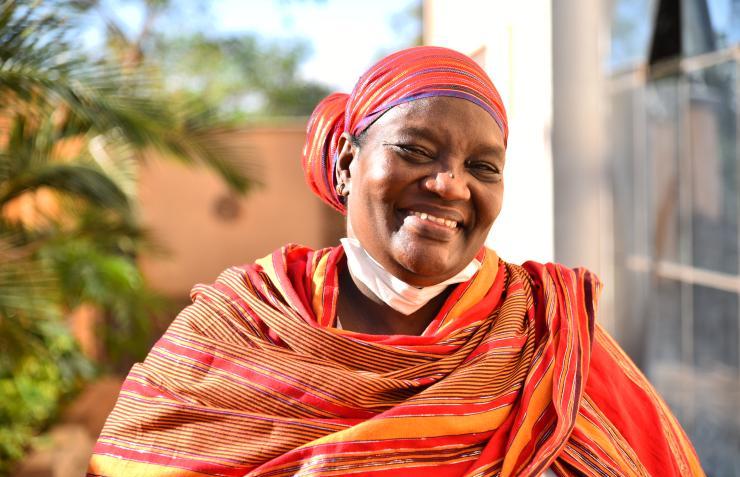Kenya. Mama Shamsa. “I am a mother to them”.

Faced with the violence of criminal gangs that have overwhelmed the lives of many children, the Kenyan activist opened the doors of her home, giving young people an opportunity. A commitment that earned her the Zayed Prize for Human Fraternity 2023.
Shamsa Abubakar Fadhil is a Kenyan activist and first president of the National Women’s Peace Committee, a UN Women-backed network that coordinates local initiatives for women’s empowerment, peace, and security. On 4 February in Abu Dhabi Mama Shamsa – as she is known – received the 2023 Zayed Award for Human Fraternity, four years after the signing of the historic Document by Pope Francis and
the Grand Imam of Al-Azhar.
Shamsa recounts “In 2019, seven young people involved in criminal activities were killed in a police raid in my neighbourhood: the oldest was 15 years old. As a mother, I said to myself: ‘These children should be in school, instead they are being killed. Where have
we failed as families?’”
The commitment of Shamsa Abubakar Fadhil, now known as Mama Shamsa, an activist for the recovery of children at risk in her community in Mombasa, Kenya, began with this question.
Precisely her work to ‘remove the younger generations from crime and extremism’ earned the woman the 2023 Zayed Award for Human Fraternity, received in February in Abu Dhabi.
Faced with the uncontrolled violence of the gangs, exploited by extremist groups and by local political parties in fierce competition with each other, Shamsa, who has also been the first president of the Women’s Peace Committee in Kenya since 2021, decided that someone had to take charge of these “disbanded children who are often
slaves to drugs”, she said.
Thus, she obtained from the local administration two weeks to experiment with an intervention strategy. “In collaboration with neighbourhood leaders and the police, I proposed an amnesty for young people wanted by the police. Then I organized barazas, i.e., public confrontations, in different areas of Mombasa and asked the inhabitants to hand the children over to me, guaranteeing that no one would be prosecuted or killed”.
After the first meeting, there were four of them knocking on Shamsa’s door. “Together with the District Peace Committee, I took care of them; we organized a collection to buy clothes and shoes and showed the community that these people needed to be forgiven. The next day there were 24 knocking on my door…”.
Today the program initiated by Mama Shamsa, expanded through collaboration with civil society and the private sector, involves over 1,000 young people, providing them with counselling and professional training as an alternative to crime.
When asked how she managed to change these kids, the activist replies: “It’s simple. I became a mother to them. I accepted them unconditionally without ever judging them”. But she also underlines the importance of education as an antidote to a corrupt system: “Politicians don’t want kids to go to school, read the Constitution or know their rights; they prefer that they remain beggars. But we want to create the leaders of tomorrow who bring about change”. (Photo: UN Women/Luke Horswell)
Chiara Zappa/MM



